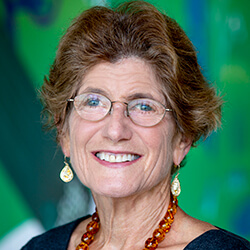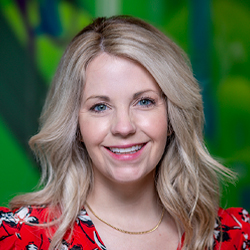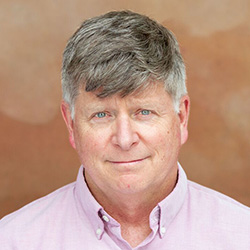Primary Ciliary Dyskinesia and Bronchiectasis Clinic
Contact the PCD and Bronchiectasis Program
Seattle Children’s is a fully accredited Primary Ciliary Dyskinesia (PCD) center through the PCD Foundation Clinical and Research Centers Network under the leadership of Dr. Margaret Rosenfeld and Dr. BreAnna Kinghorn. Our PCD and Bronchiectasis clinic offers complete services for diagnosing and managing PCD and other types of bronchiectasis in children and young adults.
The clinic is part of Seattle Children’s Pulmonary Program and includes a team of doctors, nurses and respiratory therapists committed to providing complete and compassionate care for your child. We work closely with experts in many of Seattle Children's clinics, including Otolaryngology, Audiology and Immunology.
What is PCD?
Primary ciliary dyskinesia (dis-kie-nee-zhuh), also called PCD, is a rare genetic condition where the tiny hair-like cells lining the airways of the lungs (cilia) do not beat properly. The inactive cilia are unable to clear out germs, mucus and particles like dust from the lungs.
It is difficult to diagnose PCD because the symptoms are not specific. Most children with PCD had difficulty breathing at birth, which required oxygen or breathing support, and have developed lasting nasal drainage and wet cough that started within the first 6 months of life. PCD can lead to repeated sinus, ear and respiratory infections, as well as damage to the airways. Because these little hairs (cilia) are also in the inner ear canal and tubes that carry sperm, hearing loss and male infertility can also result.
Multiple tests are often needed to diagnose children or adults with PCD. These tests may include a combination of genetic testing, looking at cilia under the microscope and a simple test measuring nitric oxide in the nose, which is lower in people with PCD.
Many children with PCD need ear tubes, regular hearing screening or hearing aids. Currently, there is no cure or drugs specifically for people with PCD, but treatments such as airway clearance exercises, antibiotics, sinus rinses and ear tubes can help.
“When we learned our baby was born with an extremely rare disease that most people have never even heard of, I just wanted to shout it from the mountaintops. How can there be a fix to a problem that most people don’t know exists? I wanted to bring awareness to PCD.”
What is bronchiectasis?
Bronchiectasis (bron-kee-eck-tuh-sis) is abnormal widening of the airways of the lung (bronchi) that can be seen on chest CT (computed tomography). It causes chronic cough, mucus production and frequent respiratory infections.
There are many causes of bronchiectasis, including:
- Genetic conditions (including primary ciliary dyskinesia)
- Problems with the immune system (reduced ability to fight infection)
- Past lung infections
- Problems with swallowing causing food or fluids to accidently be breathed into the lung
Why choose Seattle Children’s Primary Ciliary Dyskinesia and Bronchiectasis Clinic?
-
The experts you need are here
Seattle Children’s is the only PCD referral center in the Pacific Northwest, with patients coming from Washington, Wyoming, Idaho, Oregon, Alaska and Montana. We are the only center in the Northwest that performs nasal nitric oxide testing, which can be used to help diagnose PCD. We collaborate with Dr. Christopher Goss at the University of Washington to ensure optimal transition and longitudinal care for adults with PCD.
For more than a decade, U.S. News & World Report has consistently ranked us among the top pediatric pulmonary programs in the nation, which means your child will be cared for by the very best.
-
Your child and family get support
Our providers see patients for regular follow-ups to make sure their needs are being met and they are responding to their therapies.
-
We’re advancing PCD research for children and teens
Dr. Margaret Rosenfeld has been involved in PCD research for over 20 years as Seattle Children’s site investigator in the Genetic Disorders of Mucociliary Clearance (GDMCC) Consortium. Dr. BreAnna Kinghorn has been involved in PCD research for over 10 years, and is a GDMCC co-investigator. This multisite North American consortium is advancing knowledge of PCD and other rare lung diseases. The consortium has identified many new genetic causes of PCD, standardized the approach to diagnosing PCD, and characterized the changes over time in people with PCD.
-
We’re involved in several PCD research projects
- Defining the Genetic Causes of Suppurative Lung Disease in Children and Adults: A multicenter, observational study focused on diagnosing PCD and inborn errors of immunity (IEI) in children and adults. (Enrollment complete)
- Respiratory Tract Exacerbations and Treatment Response in PCD: A multicenter observational study that utilized remote monitoring technologies and sample collection to characterize acute pulmonary exacerbations (episodes of increased cough, mucus production, nasal drainage, shortness of breath and/or fatigue treated with oral, inhaled or intravenous antibiotics) in children and adults. (Enrollment complete)
- State-of-the-Art Scoring system for Chest CT Scans in PCD: Chest computed tomography (CT) is a sensitive method to detect and monitor the progression of structural lung abnormalities in PCD. We are evaluating new chest CT scoring tools for evaluating structural lung disease in children with PCD.
-
Ways to get involved
The PCD Foundation Registry, a prospective, multicenter natural history observational study collecting clinical and demographic information as well as patient-reported data to improve PCD diagnostics, clinical care, quality of life and patient-important outcomes.
Interested in joining the PCD Foundation Registry? Please reach out to us at:
[email protected]
[email protected]
Services We Provide
-
Lung function tests
Spirometry, plethysmography and diffusing capacity lung function tests can be performed to assess lung function or how much air moves in and out of the lungs. Spirometry can be performed around 5 years of age, whereas plethysmography and diffusing capacity can be performed in late childhood/adolescence.
-
Nasal nitric oxide measurement
Measuring nasal nitric oxide is one important tool for diagnosing PCD. This is a simple, quick and painless test that can be done in children over 5 years of age. We perform the test in our pulmonary function lab. The next closest labs performing nasal nitric oxide testing are in Denver, Colorado, and Palo Alto, California.
-
Ciliary biopsies
Nasal ciliary biopsies involve scraping the inside of the nose to examine the cilia under an electron microscope. The nasal scrape is quick and is done by our otolaryngology team.
-
Genetic testing
Genetic testing for mutations in genes known to cause PCD is generally part of the testing for PCD. Genetic testing is also available for immune deficiencies.
Who's on the team?
Seattle Children’s multidisciplinary Primary Ciliary Dyskinesia and Bronchiectasis Clinic team includes pulmonologists, otolaryngologists, respiratory therapists and nurses.
Leadership
-
Professor and Associate Vice-Chair for Clinical Research, Department of Pediatrics
-
Assistant Professor, Department of Pediatrics; Associate Director, Pediatric Pulmonary Center
-
Professor, Division of Pulmonary, Critical Care and Sleep Medicine; Associate Dean for Clinical Research in the School of Medicine, Office of Research and Graduate Education
Resources for Patients and Families
You and your family may find helpful information on these links and patient handouts.
- Primary Ciliary Dyskinesia Foundation (PCD Foundation – Helping Those Affected by Primary Ciliary Dyskinesia)
- Pulmonary Function Testing in Children – American Thoracic Society
- Bronchiectasis – NIH
Scheduling an Appointment
If you would like a referral to the Primary Ciliary Dyskinesia and Bronchiectasis Clinic, talk to your primary care provider. How to schedule an appointment at Seattle Children’s.
Telemedicine at Seattle Children’s
We offer telehealth (virtual) appointments. Learn more about telemedicine at Seattle Children's.
Contact Us
For more information, contact us at 206-987-2174. If you would like an appointment, ask your child’s primary care provider for a referral.
Providers, see how to refer a patient.
Paying for Care
Learn about paying for care at Seattle Children’s, including insurance coverage, billing and financial assistance.
Access Additional Resources
Get resources for patients and families, including information on food, housing, transportation, financial assistance, mental health and more.



